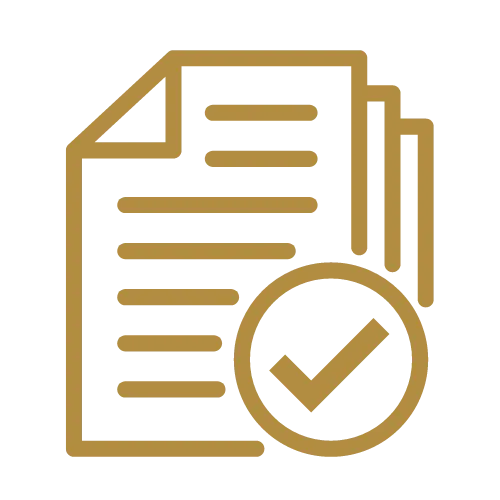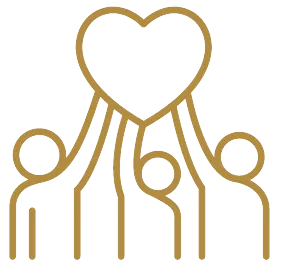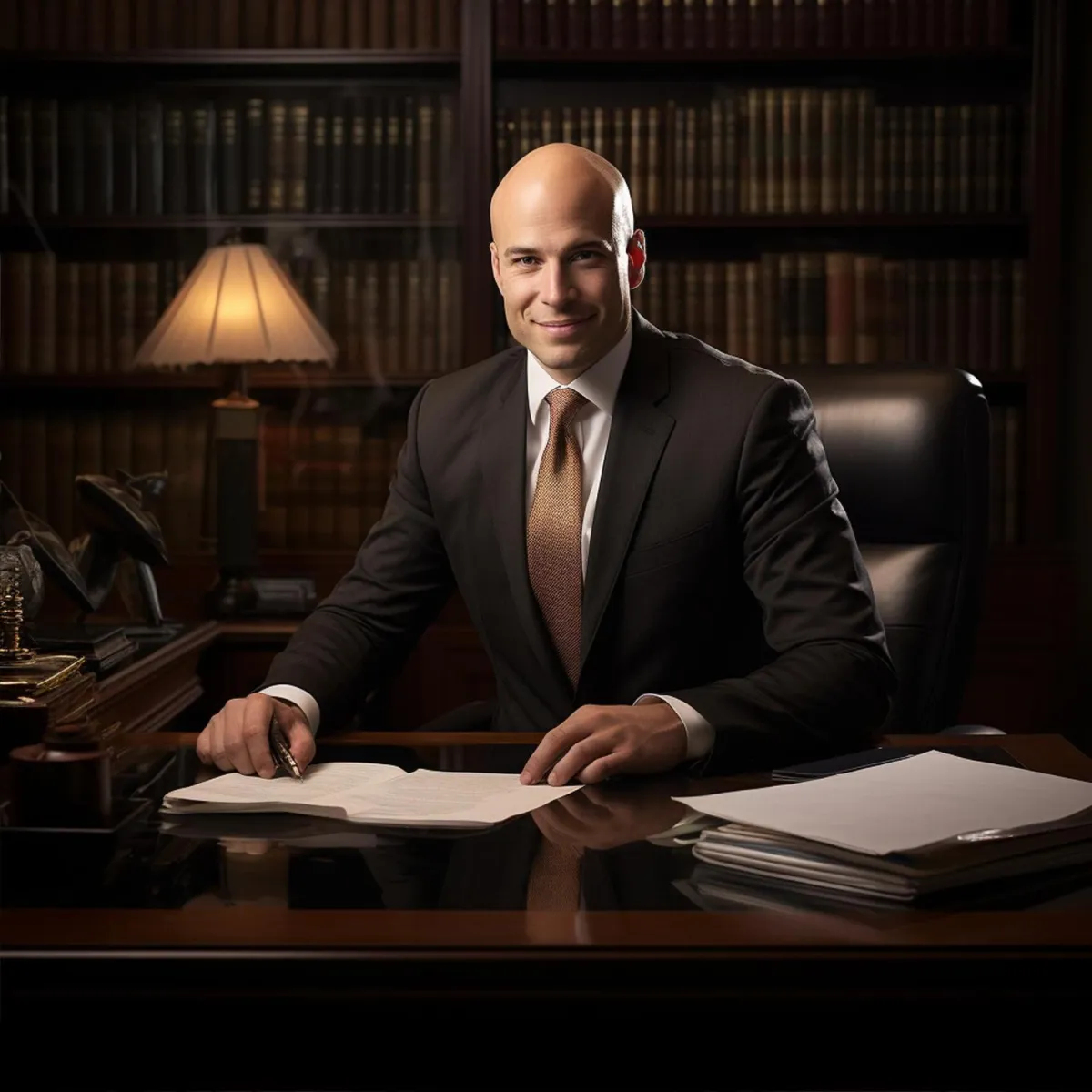CONTACT
news & updates
Need Any Help?
Compassionate Counsel for Your Family's Well-Being
We understand the emotional challenges families often face during legal proceedings. Our compassionate and passionate crisis intervention specialist(s) provide not only consulting services but also a supportive environment to help you make informed decisions. We are committed to safeguarding your family's well-being throughout the legal process and any financial hardships you may be experiencing.

About Us
Your Trusted Family Advocates
About Us
Your Trusted Family Advocates
At Golden Gates Consulting™ PMA, LLC we take immense pride in being your trusted family advocates. Our unwavering commitment to the families we represent has made us a beacon of legal right and wrongs. Don't get pushed around by legalese language and paperwork.
WHAT WE DO
Our Service Areas

Housing Resources
Distressed Homeowner?
Can't get financed for a home loan?
Tired Landlord: don't want to deal with toilets and tenants? Inheritance Property: dealing with an unwanted house?
Job Relocation: I don't have time to sell? or get rid of items?
We take the stress out of the mess and help you turn the page to the new chapter in your life.
Proud Veteran & Family Owned Entity

Marketing Agency
Starting a business? Need a website? Need an LLC? Need leads? Need an audit of current business standing? Need automations? Need marketing proposal? Rebranding?
Let's take the stress out the mess and turn these burdens into blessings, as it should be.

Notary Services
Flexible scheduling and appointments. Get stamped right the first time. Online Mobile Services Available.

Estate Planning
Set yourself and your family on the path of family wealth building by protecting your assets the right way. Don't have a fall sense of freedom and leave no stone unturned when it comes to what rightfully belongs to you and your future generations to come. We understand statutory vs non-statutory documents and creation of those documents.

Housing Resources Referral Program
Become an Investor or a Partner
Are You a Broker, Agent, Contractor, Non-Profit, Community Enrichment / Community Redevelopment Planner, Appointed / Elected Official, Civil Leader? or know someone?
Everyone we work with has a beneficial interest in what we do, if you can provide value, we want to work with you!

Current Properties
Our current property listings.
Our Resilience, Expertise, Moral Integrity, Compassion & Values is what sets us apart.
How Can We Help You Today?

We have helped families save their credit by stopping foreclosures and at times were even able to pay them out some of their equity. We provide options that lenders do not want homeowners to know about and we can do transactions that most can't or simply won't do. Let us help you gain back control of your situation and turn the page to the new chapter in your life. With our services we usually can get you back in control in as little as 7 days.
We Buy Problems Not Houses™

Sometimes there isn’t enough time to wait for a Real Estate agent to sell your home or you just don’t want to pay the commissions and fees involved. If you don’t have much equity, it can also feel as though you're trapped with limited options. You may even have to come to closing with money coming out of your pocket. You can take comfort in knowing that YOU HAVE OPTIONS! Let's see how we can help you and if it makes the most sense.

Did you know if your house was auctioned off you may have rights and claim to unclaimed funds?
Our organization specializes in helping people recover money following a auction sale.
We do not charge anything up front, we work on contingency basis, so we only get compensated if we get you results.
Don't let the banks and whoever else take claim to funds that are owed to you. We know the process and paperwork involved and work in conjunction with an attorney to recover as much money as possible. We can't help if you don't reach out to us.
We want you to receive what rightfully belongs to you! We are your housing advocates. We are here to be of service.
Did you also know that there is a way to protect yourself from any default in the case of injury, illness, or loss of employment? With the right mortgage protection insurance, you can ensure that you will never receive notice of default or pre-foreclosure letters.
Now, you won't let anyone go into your purse or wallet, don't allow that to happen with your home either, we got your back, reach out to us!

Any individual, regardless of financial standing, if you own a home, own a business, own life insurance policies, have children, etc...., get protected the right way and don't have a fall sense of freedom.
Did you know that a will doesn't help your family the way you may think it does? and did you know probate court was created for the interest of creditors and not for you or your family?
Don't leave your loved ones with the financial hassles when you pass and ensure an ease of ownership to your future generations!
Have you heard about trust fund babies, but never knew how that came to be? or how to set that up?
Book a FREE 30 min consultation and we can show you how you can obtain privacy, avoid probate, and eliminate family dispute. Don't you and your family deserve peace of mind? Use the strategies that have been utilized by the wealthy that are often hidden or out of our reach purposely! Read More Here about Legacy Planning.

Our Land Trust Creation Service offers real estate investors a strategic method to maintain anonymity, facilitate easier asset management, and ensure smoother transactions. Designed to protect your privacy and reduce liability, our service simplifies the complexities of real estate ownership.
Key Benefits:
Anonymity: Keep your ownership details private, protecting you from unwanted attention and solicitation.
Asset Protection: By placing property in a land trust, personal liability is significantly reduced, safeguarding your other assets from potential legal actions.
Ease of Transfer: Transferring property can be executed with discretion and without the usual formalities of public records.
Succession Planning: Simplify the succession process of real estate without the complications of probate.
Whether you are a seasoned investor or new to real estate, our land trust creation service ensures your properties are managed efficiently and your privacy is maintained. Let us help you take control of your real estate investments with a professional and personalized approach.

Get stamped right the first time!
We currently provide:
Electronic Signing (emergency & convenience signing)
Remote Online Notary Services
Mobile Notary Services
In-person Notary Services - CT, NY
*We Specialize in Real Estate Documents*

Marketing Services
We provide lead generation to any business looking to increase their monthly profits. We provide SEO optimized lead magnets, automated notifications, and more
Other Services

We offer alternative pathways to homeownership regardless of your current or past credit history standings. Own a home sooner than you thought!

Legacy Planning
m

View our current properties we have on inventory and reach out to us if interested in any of our rehab projects to move-in ready homes we have acquired across the nation.

Mortgage Protection Insurance ensures that your home remains a haven, even if the unexpected happens. It's a specialized coverage that pays off your mortgage in the event of a disability, critical illness, or death, ensuring your family can keep the home you've built together. Provide peace of mind to your family when the inevitable happens and provide them ultimate layer of security and peace.

Become an investor, partner, or donation giver. Everyone we work with has a beneficial interest in what we do! Click below to submit your buyers box, or tell us how you will like to partner with us!

We are linked with multiple charities and foundations that are close and dear to our heart, want to give or need a tax write off? Think of us as we are involved with uplifting and rebuilding our communities!
We are committed to women's empowerment, offering programs that bolster their personal and professional lives. Our initiatives assist women in obtaining professional licenses and creating diverse income streams, empowering them to take control of their time, elevate their family roles, and enhance community leadership. With resources for economic independence, we aim to create an environment where women can thrive.
Obtaining and maintaining a home has become complex as land control tightens, pushing more people toward renting instead of owning. This shift undermines the middle class's ability to own assets, increasing reliance on government support. We counteract these challenges by advocating for homeowners to keep their land and their property. Our goal is to help you maintain control and protect your family's future.

🏡 How to Dodge the Foreclosure Wrecking Ball in Connecticut: Your Top 10 Lifelines 🚀
We Are Your Pre-Foreclosure Mitigation Specialist, Advocating for Families Across the Nation ...more
Pre-Foreclosure
October 31, 2023•3 min read

We are linked with multiple charities and foundations that are close and dear to our heart, want to give or need a tax write off? Think of us as we are involved with uplifting and rebuilding our communities!

#WOTM-ment
Women on the movement is the foundation of what we do and why we do it. Women supporting other women achieve good success with women who want more out of life, which ultimately is being there for our family.
FAQ's - Services
What Are The Services We Provide?
-Pre-foreclosure Mitigation Advocate
-Unclaimed funds advocate on homes that have been auctioned off/foreclosed on: Nationwide
-Need to sell home for any reason and cannot wait for realtor to sell, we handle homes that are in: probate, divorce, tired landlord, need repairs, tenant won't pay, behind on payments, estate sale, job transfer/relocating, owe liens, 100% financed, vacant home, etc.
-E-Notary Services: Nationwide
-Notary Services: CT, NY
-Mortgage protection insurance
-Keys 2 Homeownership: rent to own / owner financing
What Are The Services We Provide for Real Estate Investors?
-Land Trust Transaction Coordinator/Specialist for real estate investors to protect their assets
-We acquire properties, seeking investors for who are interested in Texas, CT, NY, NJ, & FL
How Should I Reach Out?
Book a free consultation with us for any of the services you are interested in to see how we can help. We handle all types of situations and do what is best for you and us. If it doesn't work out, we part our ways, no harm, no foul. But, we want you to protect what rightfully belongs to you! We help others fight against the injustice because we have the know how to do transactions that most can't or simply won't do.
I Don't Want to Talk to Anyone Just Yet...
Don't want to speak to anyone just yet? No worries, feel free to speak to our chat widget right here on this website. Our chat widget can help answer any of your questions regarding how our services can provide value to your specific needs and situations; as our first priority is to protect what rightfully belongs to you.
Testimonials
I cannot express my gratitude enough for the exceptional legal support I received from [Your Law Firm Name]. When my family was going through a tough divorce.

John Doe
Lorem ipsum
Choosing [Your Law Firm Name] was the best decision I made during my adoption journey. Their team handled all the legal complexities with precision and made the entire process feel seamless.

John Doe
Lorem ipsum
Testimonials
I cannot express my gratitude enough for the exceptional legal support I received from [Your Law Firm Name]. When my family was going through a tough divorce.

John Doe
Lorem ipsum
Choosing [Your Law Firm Name] was the best decision I made during my adoption journey. Their team handled all the legal complexities with precision and made the entire process feel seamless.

John Doe
Lorem ipsum
Bonus Joke Section
Get Involved
Be a Legacy Builder
Partner with Us
Mission Initiatives
Charities & Foundations
Get Involved
Our Services
Foreclosure Mitigation
Leave a Review/Testimonial
FAQ
Get In Touch
© 2024 - 2025 Golden Gates Consulting™ PMA, LLC. ALL RIGHTS RESERVED.
TERMS OF SERVICE | PRIVACY POLICY | PRIVATE MEMBER ASSOCIATION
Address: Nationwide Services | Partnered
Sister Divisions: Divine Property Associates | Morney Signing Services, TX | CT Notary Hub | Golden Gates Consulting, CT | Nourish'd
This site is not a part of the Google website or Google, Inc. Additionally, this site is NOT endorsed by Facebook in any way. Google is a trademark of GOOGLE, Inc. DISCLAIMER: Individual results may vary, the figures stated above are personal figures. Please understand our results are not typical. We are not implying you'll duplicate them (or anything for that matter). The average person who buys any "how to" information gets little to no results. We are using these references for example purposes only. Your results will vary and depend on many factors...including but not limited to your background, experience, and work ethic. All business entails risk as well as massive and consistent effort and action. If you're not willing to accept that, please DO Not opt-in for training.
The content on this site is for informational purposes only, you should not construe any such information or other material as legal, tax, investment, financial, or other advice. Nothing contained on our site constitutes a solicitation, recommendation, endorsement, or offer by Golden Gates Consulting™ PMA, LLC or any third party to buy or sell any financial instruments.
Meriden, CT
Hartford, CT
New Haven, CT
Wallingford, CT
Cheshire, CT
Middletown, CT
New Britain, CT
Manchester, CT
Rockyhill, CT
Waterbury, CT
Wolcott, CT
Durham, CT
Portland, CT
Berlin, CT
Bristol, CT
Wethersfield, CT
West Hartford, CT
Trumbull, CT
Fairfield County, CT
Hartford County, CT
New Haven County, CT
Litchfield County, CT
Middlesex County, CT
New London County, CT
Tolland County, CT
Windham County, CT
Houston, TX
Dallas, Tx
Harris county, TX
Get Involved
Be a Legacy Builder
Partner with Us
Mission Initiatives
Charities & Foundations
Our Services
Foreclosure Mitigation
Leave a Review/Testimonial
FAQ
Get Involved
Be a Legacy Builder
Partner with Us
Mission Initiatives
Charities & Foundations
Get Involved
Our Services
Foreclosure Mitigation
Leave a Review/Testimonial
FAQ
Get In Touch
© 2024 Golden Gates Consulting™ PMA, LLC. ALL RIGHTS RESERVED.
TERMS OF SERVICE | PRIVACY POLICY | PRIVATE MEMBER ASSOCIATION
Address: Nationwide Services | Partnered
Sister Divisions: Divine Property Associates | Morney Signing Services, TX | CT Notary Hub | Golden Gates Consulting, CT
OUR ATTORNEY
Meet Our Attorney

John Doe
CEO & Founder

John Doe
CEO & Founder

John Doe
CEO & Founder
Get In Touch
FAQS
How long does the divorce process typically take?
The duration of a divorce process can vary significantly based on several factors, including the complexity of the case, the willingness of both parties to cooperate, and the backlog of the court system. In general, uncontested divorces where both parties agree on all key issues tend to be faster and can be finalized in a few months. However, contested divorces, which involve disputes over assets, child custody, or alimony, may take considerably longer, often extending to a year or more. It's crucial to consult with our experienced family lawyers to get a more accurate estimate based on the specific details of your case.
What are the advantages of mediation over a traditional court-based divorce?
Mediation offers several advantages over a traditional courtroom divorce. First and foremost, it promotes amicable resolutions, reducing the emotional stress and cost associated with litigation. Mediation also allows couples to maintain greater control over the outcome, as decisions are reached collaboratively rather than imposed by a judge. Additionally, mediation tends to be quicker, making it a more time-efficient option. It's worth noting that mediation is not suitable for all cases, particularly those involving domestic violence or situations where one party is uncooperative. Our legal team can assess your circumstances and help you determine if mediation is a viable and beneficial option.
What should I consider when creating an estate plan for my family?
When crafting an estate plan to secure your family's future, several key factors should be taken into account. First, you'll want to identify your assets and determine how you want them distributed among your loved ones. Creating a will and trusts can help facilitate this process. Next, consider appointing a guardian for minor children if necessary. Review and update your plan regularly to ensure it reflects your current circumstances and wishes. Don't forget to designate beneficiaries for retirement accounts, life insurance policies, and other assets that pass outside of probate. Lastly, consult with an experienced estate planning attorney to ensure that your plan complies with local laws and maximizes the benefits for your family while minimizing tax liabilities.

